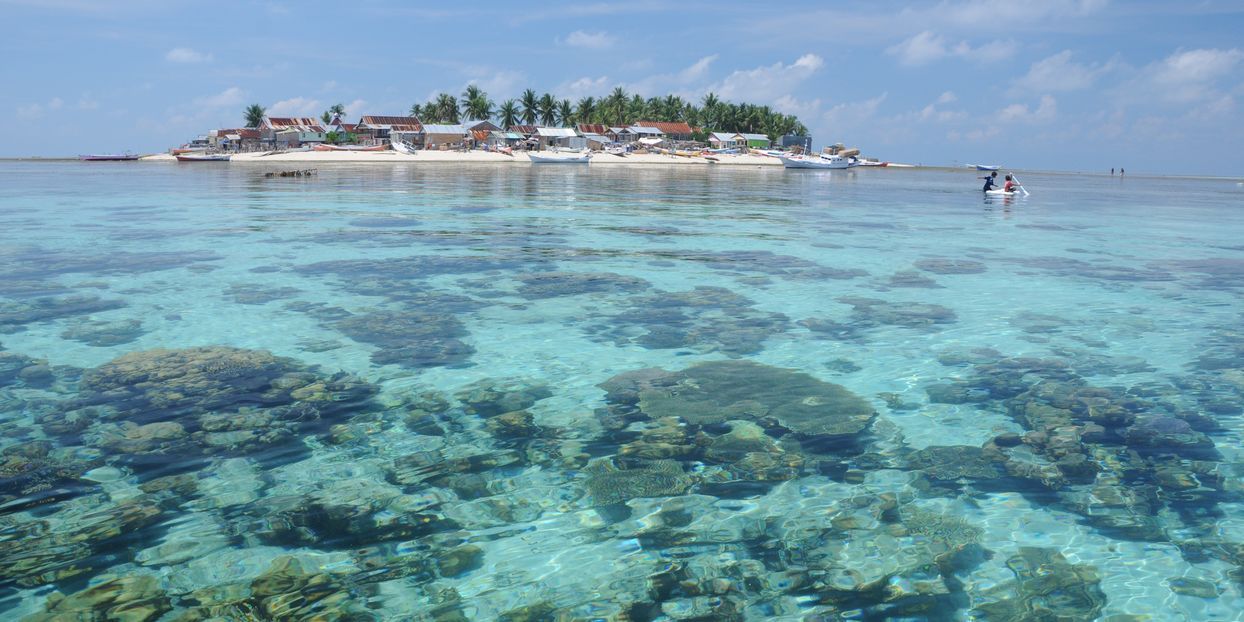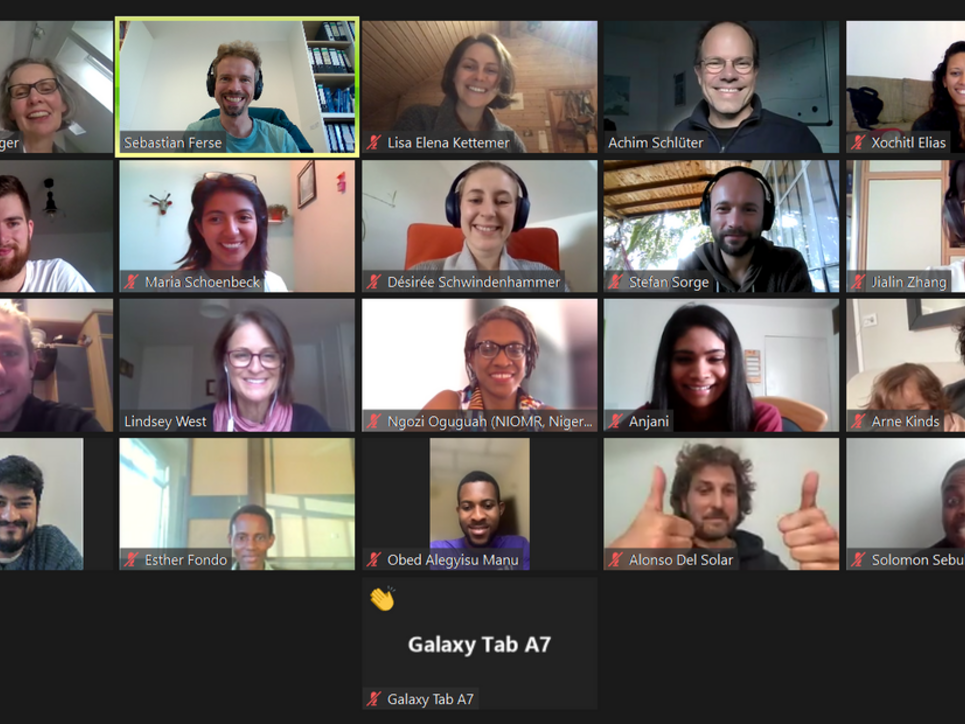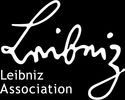
Summer School 2022
Monsoon School/Summer School 2022 “Generating impact in complex natural resource contexts: co-design and development of transdisciplinary research projects projects in a Global North/South perspective”
24 October – 1 November 2022, online
This training course (a “Monsoon School”) was organized by the Leibniz Centre for Tropical Marine Research (ZMT) in collaboration with the Leibniz Research Network “Science for Sustainable Development” and the project LeNa Shape (Research in social responsibility - design, impact analysis, quality assurance). It was carried out from 24. October to 1. November and was further supported by the Western Indian Ocean Marine Science Association (WIOMSA), International Ocean Institute Deutschland (IOI), Future Earth Coasts (FEC).
The course addressed the development of a transdisciplinary research project plan with a particular emphasis on societal impact, and combined theoretical lectures with practical examples and group exercises for a total of 30h of course work.
"During the Monsoon School, we also came into contact with diverse tools and approaches that allowed me to see a sequence of steps and crucial elements that need to be considered throughout the planning and development process of a transdisciplinary project." (X. Ilosvay)
It involved international experts from academia and practice as lecturers, and allowed participants to develop a thorough understanding of theoretical concepts, methods, and practical application, while directly applying the material in case studies of their own choice. Topics covered include transdisciplinarity and transdisciplinary approaches, positionality and differences in perspectives, stakeholder mapping and engagement of diverse actors, equitable research collaborations and participation, effective science communication, and evaluation of transdisciplinary projects. The participants engaged with the lecturers in interactive sessions and applied the topics learned to real-world case studies in daily group work accompanying the lectures.
The course brought together an assembly of experienced experts. The introduction and overview of the course were given by Prof. Dr. Achim Schlüter and Dr. Sebastian Ferse (ZMT Bremen). On the second day, Dr. Josefa Kny (ZTG/tdAcademy) and Dr. Franziska Ehnert (IÖR) spoke about transdisciplinarity, concepts and methods. Day three addressed challenges in participatory work and dealing with different goals, views and positionalities, and featured contributions by Dr. Dr. Guido Caniglia (KLI) and Jean-Emmanuel Rougier (LISODE). Research impact, theory of change and stakeholder engagement were the topics of the fourth day, with Prof. Dr. Mark Reed (Fast Track Impact) and Dr. Boru Douthwaite (Selkie Consulting) as lecturers.
"One of the practical benefits that I gained from the school was the ability to integrate interdisciplinary research and methods into local scenarios; especially those facing environmental shocks such as climate change." (B. Matovu)
The first week ended with lecturers by Dr. Fabian Käser (KFPE) and Prof. Dr. Samiya Selim (CSD-ULAB) on equitable research collaboration and navigation of inequalities. On day six, training in effective science/policy communication and ways to gauge the success of transdisciplinary research projects was provided by Ann Foo, Joseph Edgerton and Dr. Heath Kelsey (IAN-UMCES).
Announcements for the course were distributed through a variety of channels (e.g., ZMT social media and website, LfN Sustain website, Future Earth community forum, Future Earth Coasts social media, WIOMSA website). The course generated interest from around the world, and over 50 people applied. From these, 38 were selected based on their submitted documents and criteria such as topical match, quality of the application or diversity of participants. A number of the selected candidates were not able to participate in the end, resulting in a core group of around 25 participants.
"The summer school helped me network and learn about stakeholders' perspectives on marine spaces and their coast-to-coast management concepts." (S. Sebulbia)
Among several dozen ideas for case studies submitted by the applicants beforehand, six were selected based on applicants’ ranking ahead of the course, of which four were worked on by the participants in fixed individual groups throughout the course. Group work followed the central lectures given each day, with final presentation of the case studies on the last day of the course.
Find the full agenda here.
The feedback from participants and lecturers was extremely positive, with several participants mentioning that the course offered new perspectives and skills to them, as well as providing concrete input to projects they were currently working on. A number of the participants formed groups on social media to stay in touch following the completion of the course.
Find the Testimonials here.
Contact
Leibniz Centre for Tropical Marine Research
Rebecca Lahl (rebecca.lahl@leibniz-zmt.de)
Dr. Sebastian Ferse (sebastian.ferse@leibniz-zmt.de)

